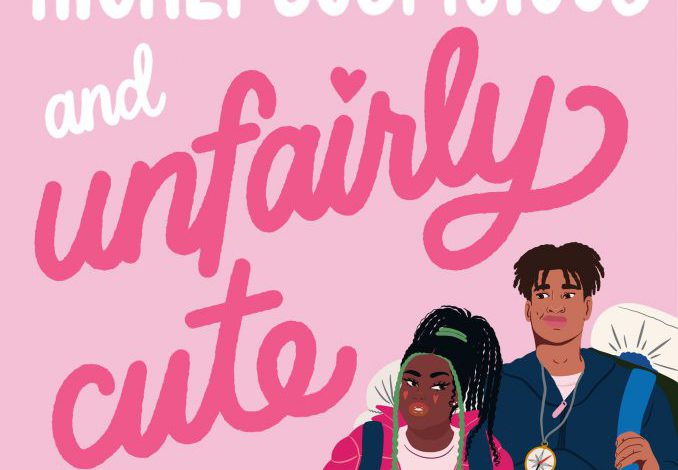Just in time for summer, Highly Suspicious and Unfairly Cute will serve as a great beach book. Although Talia Hibbert’s debut young adult novel is light reading, it does occasionally rise above the cotton-candy fluff of a romance novel with its insight about human nature.
Hibbert’s protagonists are a pair of seventeen-year-olds in their final year at Rosewood Academy in England. For any readers requiring introduction to this discourse community, Hibbert provides a glossary. As the story unfolds, Celine Bagura is an excessively sarcastic conspiracy theorist with the goal of attending Cambridge to earn a law degree. Focused, serious, and prone to being pedantic, she doesn’t have the time or the patience to smile easily. Her best friend, Michaela Digby (aka Minnie) acts as a sounding board for Celine’s emotional rants and serves to ground, comfort, and advise her. Celine has developed quite a following on TikTok and other social media platforms where she posts her stories.
While Bradley Graeme also openly admits to a desire to pursue a law degree so as to keep from becoming a starving artist, he secretly dreams of a Hugo Award and of being a best-selling sci-fi author. Bradley, who plays football (soccer) and has quite a following in the popular crowd, is viewed with disdain by Celine. Initially, the reader suspects that some of this treatment results from jealousy or even from body image issues because Celine refers to people like Bradley as “popular people who think sports and looks and external approval are a valid replacement for actual personality [and] don’t have the social skills to deal with anyone outside their golden circle” (16). However, we soon learn that Bradley and Celine used to be best friends. In fact, Bradley, who is “tragically gorgeous and charming” (111) used to be what Celine calls “my person.”
As Hibbert retells their history, readers learn that Celine was abandoned by her father as a child. To help her cope, Celine decided it was due to alien mind control. Although Bradley lives with obsessive compulsive disorder, he has learned “to fold himself up nice and neat so no one will notice he is different. Celine never did” (94). Between the two, they battle willful delusions and obsessive compulsions, and Celine believes Bradley has “squashed himself to fit into a social box that wasn’t made for him” (108).
When both decide to enroll in the Breakspeare Enrichment Program, a nature bootcamp with a full university scholarship prize and credibility with prestigious employers, the reader is along for the ride. Along the way, we learn the important lesson about difference not being a defect as well as about the human desire for acceptance and how we all deal with judgment. We just have to sort those who treat us as annoying and weird with those who are deliberately kind.
We further develop understanding about the walls we all erect—whether for social acceptance or for some other form of coping strategy. Hibbert artfully outlines how we all have to come to love ourselves and the skin we’re in, how we can’t depend on someone else’s approval, nor do we need to be special or significant to have value. Celine’s sister Giselle tells her: “You’re just important, always, and people either see that or they don’t They either love you, or they don’t” (163).
Thrust together in the wilderness, Bradley and Celine will have to determine what their relationship will be—friends, enemies, or something altogether different. But Celine, who has been abandoned before, will first have to come to terms with her own fear and decide whether having someone at the risk of losing him eventually will be worth the risk.
Hibbert gives all of us advice on how to cope with negative head space and how to overcome the intrusive noise that inevitably comes every time we want something to go right. Coping involves confronting those bad thoughts, grounding ourselves in the present, and out-thinking our fears. Ultimately, both teens also realize that fairness is about being happy, not hoping that those who have wronged us get punished.
My favorite moment in this book is Hibbert’s definition of creative thinking and how we can solve our problems more creatively if we pause to question the underlying premise beneath our established ideas.
- Posted by Donna

